Thomas Röhlinger: My C4D Initiatives Are Driven by Anger
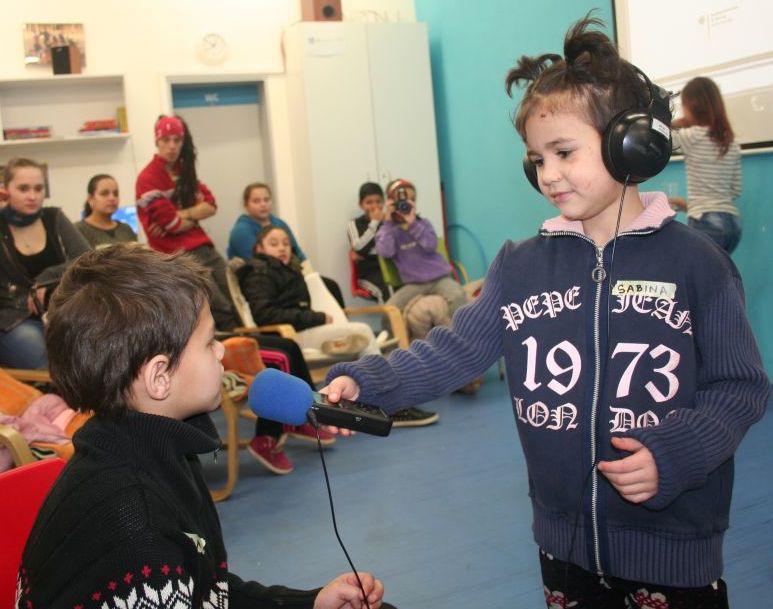
Global challenges and glocal solutions. Power structures and real action in Communication for Development. Information and communication technologies and digital divide. These and much more discussed in our exclusive talk with C4D expert Thomas Röhlinger.
Having a word on C4D present and future with Thomas Röhlinger, founder & editor-in-chief of Radijojo World Children’s Media Network, initiator of the World Children’s Media Foundation, is a big luck. Taking into account dozens of his initiatives and projects globally in more than 100 countries – from Haiti to Kamchatka, from Alaska to Malawi, finding a spare minute in his tight schedule is challenging. Yet the interview eventually does happen, and Ørecomm is grateful to Thomas Röhlinger for insightful results of this conversation.
How did you develop your interest in C4D? What was the trigger that resulted in such an abundance of activities that you lead worldwide?
Frankly speaking, the main personal motivation was and still is: Anger. Anger, that millions and millions of children worldwide are deprived from their essential rights to education, safety from war and exploitation, to health and healthy environment, to culture and self-expression etc. Also, anger about systematic and obvious targeting of children by power structures (of adults) – be it commercial exploitation, political, militaristic or radical-religious propaganda. We hardly see any legal consequences whatsoever, but we see billions of profits and huge followerships for their pathological agendas.
These mechanisms, in turn, lead to a negative global downwards spiral that threatens the future of the whole planet. C4D (especially with and for children) is one of the „grassroots“ ways to fight back. Yet without the illusion to succeed against the immense power structures mentioned.
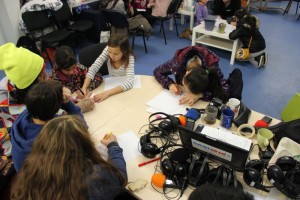
Your initiative RadioJojo has coverage worldwide. Yet where, would you say, it is the most fruitful? Why?
Since 2012, our work in Morocco shows how children, youth and civil-society can benefit from C4D, across religious and cultural borders. They speak up, make concrete plans for their communities, reach out to the community and start own activities. It happens often in contexts e.g. the UN Sustainable Development Goals. Our projects for environment (e.g. Global Green Kids) and for development (“We discover the world”) connect children on a level of common “glocal” interest. Here, we see that kids in the global South often show more commitment and professionalism than some peers in the North.
We see enormous conflict potential under the surface, also among the young generations, e.g. by radical groups of all kinds. War is just one shot away; and the global armament race is a major reason for deficits in development. In a broader sense of development, we use C4D as tools for peace. Our work in, for instance, the US and Russia are contributing to building trust.
"Globalization and digitization have not (yet?) fulfilled
the inherent promise of a better future for all.
This disenchantment is reflected in our local work on the grassroots."
What do you find to be the most challenging in building local capacity & grassroots kids initiatives?
As a sociologist, I observe certain long-term developments. Waves of enthusiasm towards democracy, social media, global education are now increasingly displaced by waves of re-nationalization, authoritarianism and skepticism towards foreign influences on education and media. The digital divide and the education divide become larger and larger every year, in my subjective observation. Globalization and digitization have not (yet?) fulfilled the inherent promise of a better future for all. This disenchantment is reflected in our local work on the grassroots.
We have countless invitations from dozens of countries that we have not entered yet; but for reasons of increasing insecurity for our staff and our friends on the grounds we have to refrain.
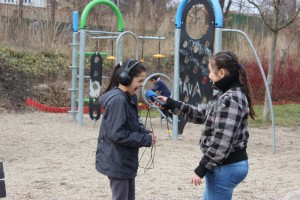
It is often complicated to allocate funds for non-commercial media initiatives. How have you coped with it when establishing children’s media networks and advocacy platforms?
The German Federal government is playing a positive role here, in comparison. We could use several sources that did not directly finance kids media activities, but special issues, e.g. environment, development, children’s rights. However, even after 15 years we still have no regular funding, and are always “on the edge”. More than three quarters of our potential impact can not be harvested.
But in many places the situation is much worse. In all those years, I have seen countless children’s media NGOs worldwide going down the drain due to lack of funding. I call this the “kids media cemetery”. If one thinks about the consequences of this tragedy, we must not be surprised about future problems concerning war and conflict, lack of education, destruction of environment, children rights etc.
On the personal level, the constant precariousness and self-exploitation threatens and destroys countless careers – and, I assume, also family life of many C4D activists.
C4D career tip from Thomas Röhlinger:
Remember that "idealism alone is not enough".
As an expert with a variety of C4D activities globally, what would you advise to those who are just starting their C4D career path, but are very ambitious to make a real impact?
Do some courses in economy, finance and management; idealism alone is not enough. Read Machiavelli in order to understand how “dark forces” work: in governments, corporates, cultural power structures. Consider entering “the system”: take our cause to the parliaments and governments as decision makers, not only as “outside” activists and lobbyists. Don’t have illusions. Be prepared for a life-long marathon, not for a sprint. And: be prepared for defeat against large power structures and difficult cultural habits. All odds are against us, I am afraid. But we have no other choice than keep on trying, learning and working together.
 Thomas Röhlinger is founder & editor-in-chief of Radijojo World Children’s Media Network, initiator of the World Children’s Media Foundation. Keynote Speaker & Member of the Advisory Board at Global Education Conference and a member of the Global Experts network at UN Alliance of Civilizations. Radijojo, World Children’s Media Network, is the non-commercial global radio and web network for children by children in more than 100 countries. Established in 2000, it is dedicated to education, peace, cultural exchange, participation social change. It cooperates with schools, community radios, education, youth and culture organizations worldwide. Partners are organizations like UNESCO, UNICEF, One Laptop Per Child, Pacifica Radio and the network of young producers within the Public Radio Exchange.
Thomas Röhlinger is founder & editor-in-chief of Radijojo World Children’s Media Network, initiator of the World Children’s Media Foundation. Keynote Speaker & Member of the Advisory Board at Global Education Conference and a member of the Global Experts network at UN Alliance of Civilizations. Radijojo, World Children’s Media Network, is the non-commercial global radio and web network for children by children in more than 100 countries. Established in 2000, it is dedicated to education, peace, cultural exchange, participation social change. It cooperates with schools, community radios, education, youth and culture organizations worldwide. Partners are organizations like UNESCO, UNICEF, One Laptop Per Child, Pacifica Radio and the network of young producers within the Public Radio Exchange.
Images via Thomas Röhlinger.
 New PhD opportunities at the University of Leicester
New PhD opportunities at the University of Leicester Call for Abstracts: New Directions in Media, Communication and Sociology (NDiMS) Conference
Call for Abstracts: New Directions in Media, Communication and Sociology (NDiMS) Conference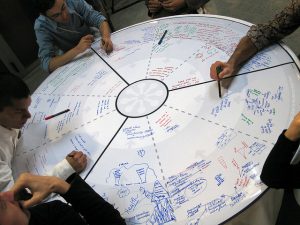 Ørecomm Team to Gather at the University of Coimbra
Ørecomm Team to Gather at the University of Coimbra “Communication and Social Change – A Citizen Perspective” Published
“Communication and Social Change – A Citizen Perspective” Published C4D Network to Sum Up Global Communication for Development Practice
C4D Network to Sum Up Global Communication for Development Practice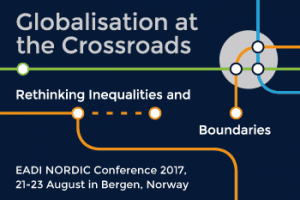 Entering Media and Communication into Development Conferences?
Entering Media and Communication into Development Conferences?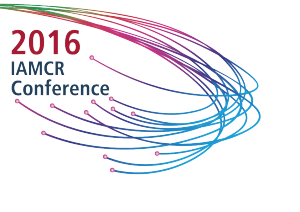 IAMCR Conference 2016: Communication for Development Highlights
IAMCR Conference 2016: Communication for Development Highlights Glocal Classroom Revisited – Storytelling & Social Change Leicester-Malmö
Glocal Classroom Revisited – Storytelling & Social Change Leicester-Malmö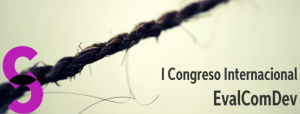 I EvalComDev International Conference: Call for Papers
I EvalComDev International Conference: Call for Papers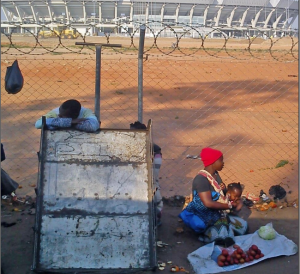 Looking for Media and Communication in Development Conferences: Devres 2016
Looking for Media and Communication in Development Conferences: Devres 2016